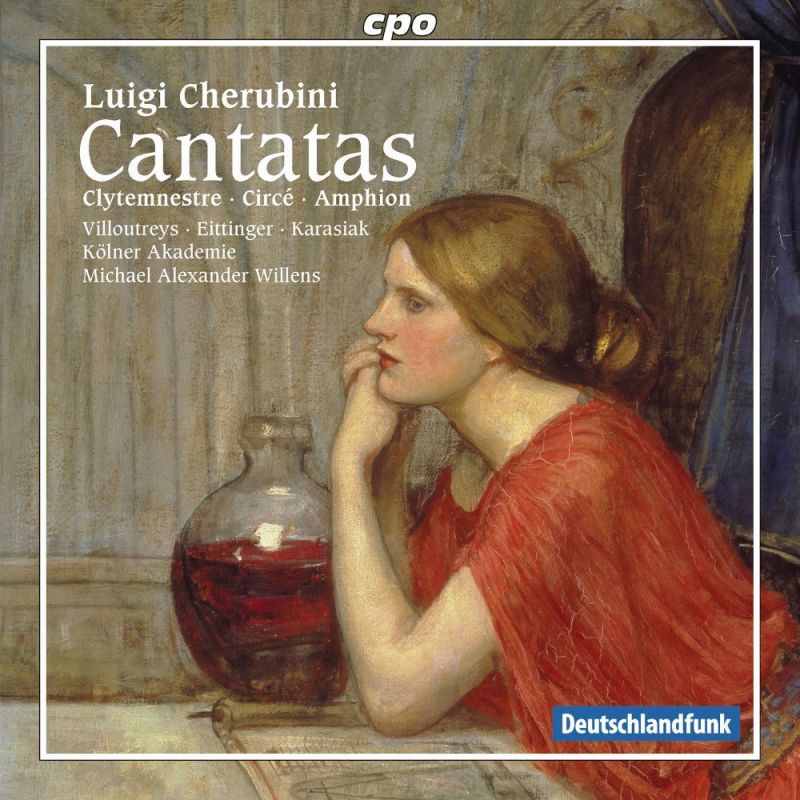CHERUBINI Cantatas
View record and artist detailsRecord and Artist Details
Composer or Director: Luigi (Carlo Zanobi Salvadore Maria) Cherubini
Genre:
Vocal
Label: CPO
Magazine Review Date: 03/2014
Media Format: CD or Download
Media Runtime: 65
Mastering:
DDD
Catalogue Number: CPO777 776-2

Tracks:
| Composition | Artist Credit |
|---|---|
| Clytemnestre |
Luigi (Carlo Zanobi Salvadore Maria) Cherubini, Composer
Cologne Academy Luigi (Carlo Zanobi Salvadore Maria) Cherubini, Composer Mailys de Villoutrey, Clytemnestra, Soprano Michael Alexander Willens, Conductor |
| La Mort de Mirabeau: Trois choeurs |
Luigi (Carlo Zanobi Salvadore Maria) Cherubini, Composer
Cologne Academy Francois Eckert, Le Marck, Speaker Luigi (Carlo Zanobi Salvadore Maria) Cherubini, Composer Michael Alexander Willens, Conductor Nicolas Boulanger, Cabanis, Speaker |
| Circé |
Luigi (Carlo Zanobi Salvadore Maria) Cherubini, Composer
Cologne Academy Luigi (Carlo Zanobi Salvadore Maria) Cherubini, Composer Michael Alexander Willens, Conductor Ursula Eittinger, Circé, Alto |
| Amphion |
Luigi (Carlo Zanobi Salvadore Maria) Cherubini, Composer
Andreas Karasiak, Amphion, Tenor Cologne Academy Luigi (Carlo Zanobi Salvadore Maria) Cherubini, Composer Michael Alexander Willens, Conductor |
Author: David Vickers
Michael Alexander Willens also conducts subtly contoured performances of three choruses that Cherubini provided as incidental music for Pujoulx’s play La mort de Mirabeau (1791); vivid outpourings of grief (plenty of trombones in minor keys) flank a gentle prayer for hope that is adorned by lyrical woodwind (‘Espérons encore’). Amphion (written in 1786 but unperformed) and Circé (1789) were both composed for the masonic Loge Olympique (the same concert society to whom Haydn sent his ‘Paris’ Symphonies): Ursula Eittinger eloquently describes the forlorn Circe lamenting the departure of Ulysses (trombones rasp boldly in an agitated illustration of the sorceress’s self-immolation), whereas the radiantly optimistic overture to Amphion hints at why Beethoven praised Cherubini as the world’s greatest living composer.
Discover the world's largest classical music catalogue with Presto Music.

Gramophone Digital Club
- Digital Edition
- Digital Archive
- Reviews Database
- Full website access
From £8.75 / month
Subscribe
Gramophone Full Club
- Print Edition
- Digital Edition
- Digital Archive
- Reviews Database
- Full website access
From £11.00 / month
Subscribe
If you are a library, university or other organisation that would be interested in an institutional subscription to Gramophone please click here for further information.




